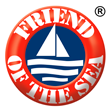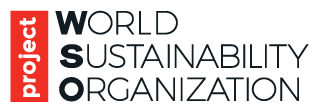The number of traditional tuna fisheries worldwide relying on the international scheme to distinguish their end products as more sustainable is expanding rapidly. The Azores, Senegal, Brazil, Maldives and South African pole and line; the Sri Lanka, Philippines and Maldives handline; the Irish troll fishery – and the processing companies sourcing from these fisheries, all of them opted for Friend of the Sea as better representing their environmentally friendly status.
The two fishing methods are very selective, according to the FAO database. As reported by the on-site auditor, discards are very low in the Pole and Line fishery (0,7%) and most of the handlines catch is tuna (often more than 80) with by-catch consisting mostly of 1 to 5% of small skipjack, mahi mahi and sail fish – used for local consumption. A negligible number of sharks is caught in the handline fishery.
The Indian Ocean Tuna Commission has recently published a report on the stock status of tuna in the Indian Ocean, based on 2007 data. Big Eye and Skipjack tuna stock status assessments indicate that the stocks are not overfished and the biomass is above the biomass at Maximum Sustainable Yield (MSY). As far as yellowfin stock is concerned, the biomass is considered to be at Maximum Sustainable Yield and the level of fishing is reported to be near MSY, with some assessment methods resulting in a fishing level slightly higher and others slightly lower than MSY. Considering that 2008 estimates of catches in the Indian Ocean indicate a likely 30% reduction due mostly to fear over the Somali pirates, the fishery has been considered to be compliant with Friend of the Sea sustainability criteria, since fishing level in 2008 is expected to be at or below MSY. Friend of the Sea will closely monitor future tuna stock assessments in the area to verify that biomass does not decrease below MSY and total catches are kept at or below MSY.
Two main producers and ship owners – Euro Global Maldives Ltd and Cyprea Marine Foods Ltd – representing an important part of the Maldives production, have been audited and their certified products will be out on the European markets with the Friend of the Sea logo.
“Maldives pole and handline fisheries have lower impact and are more selective. Consumers should know we are Friends of the Sea” comments Zakariyya Easa, General Manager of Cyprea Marine Foods Pvt. Ltd
“The scheme and the label better highlight Maldives dedication to sustainable fishing” concludes Mr Sachith, Senior Quality Assurance Executive of Euro Global Maldives Ltd
“It comes to no surprise Maldives producers turned to Friend of the Sea” comments Dr Bray – Director of Friend of the Sea “Our scheme has become an international sustainability standard for tuna and other species, being credible and affordable, selective and really conservation oriented. Other schemes are too expensive for traditional fisheries and lost credibility certifying high impact groundfish fisheries to which Maldivians would not want to be associated with”.
For more information:
FRIEND OF THE SEA – Paolo Bray – Director – paolobray@friendofthesea.org
CYPREA MARINE FOODS Pvt. Ltd – Zakariyya Easa – General Manager – gm@cypreamarinefoods.com
EURO GLOBAL MALDIVES Pvt Ltd – Mr Sachith – Senior Quality Assurance Executive of Euro Global Maldives Ltd – blueline@euroglobal.com.mv



